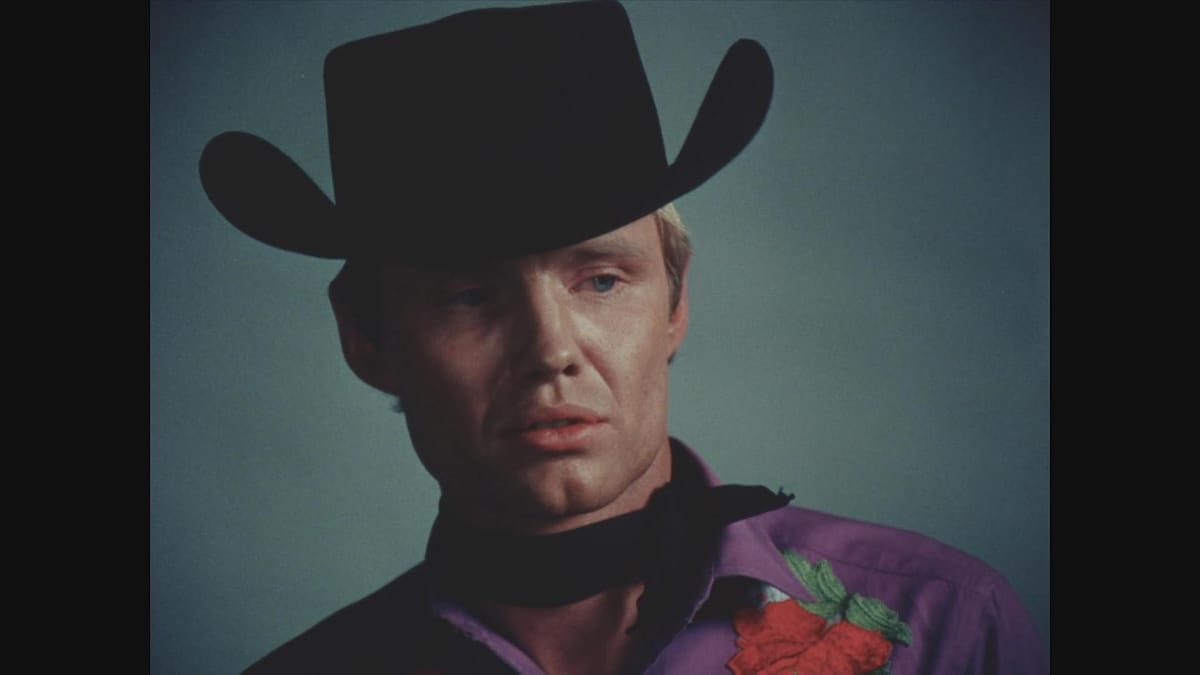Desperate Souls, Dark City and the Legend of Midnight Cowboy
A doc that fails to justify its existence

Recently, I noticed a local theater was screening both a restoration of Midnight Cowboy, and a documentary about its making. Showtimes lined up such that I could catch them back-to-back, so it seemed like the perfect chance to finally see the Best Picture winner, then learn some more about it. Since Midnight Cowboy isn’t new, I won’t be writing a full review here, but you can read my rough thoughts on Letterboxd (short version is I loved it). So what of this documentary? Did it deepen my appreciation for the film? Did I come to understand its place in culture, its lasting legacy, and how it came about? Was it a story worth telling?
The answer to all of those is: sort of?
Director Nancy Buirski set out to not only talk about Midnight Cowboy, but to contextualize it. It’s useful to be reminded of just how different and openly hostile mainstream culture was to the very existence of gay people (while we’ve still got a ways to go towards acceptance and equality, America has progressed in many ways since then). The myths and bigotry most common today amongst archconservatives was so prevalent that the production company requested the film’s X rating due to concerns about corrupting children. So for an openly gay director to make a film about two men with themes of homosexuality in 1969, shortly after it was decriminalized in some situations his home country of England, and while it was still illegal in many parts of the US, was bold. It was a statement. It was in your face. And audiences (and the Academy) responded positively.
However, Buirski spends much of the film distracted, unfocused. She wants to also capture the 60s as a whole, NYC, gay culture, the avant-garde, Vietnam, cowboys and Westerns, and more. Sure, all of these set the stage for Midnight Cowboy in the sense that every piece of artwork is a product of the time in which it’s produced. But many of those threads seem to go nowhere. If there’s a connection, she fails to make it. There’s no build, no real discussion of how it influenced Schlesinger or the movie. It’s just trying to communicate to us what the 60s felt like. While that might be fine if you’re making a doc all about the 60s, it’s way too much to bite off when your conceit is a single movie made at the end of the decade.
For example, the film spends a lot of time talking about Vietnam and the anti-war protests. Hell, after a bit, it feels like we’re poised to switch subject matters. I was wondering if Schlesinger was shaped by it in some notable way, or if the movie’s production was impacted, or something like that. Instead, the doc’s whole point seems to be that young people were energized and ready for change, and Midnight Cowboy satisfied that?
When Desperate Souls settles in and talks about Midnight Cowboy, it’s pretty good. Standard talking heads style, occasionally using VO over scenes from the movie, but with some good archive footage. For example, we see Voight’s screen test for Joe, which is kinda neat. It’s occasionally illuminating to get the perspectives and behind the scenes content from those who were involved (or their children, in the case of those who have since passed, such as Schlesinger). Not because they’re necessarily right or have a ton to say, but because it shows us how they approached it, rightly or wrongly. For example, modern-day Voight says he never thought of it as a story of two men who fall in love, but of a close brotherly bond; while this calls into question when he last watched the completed film (if ever), it does tell us how he approached the performance.
And yet, I’m more struck by the omission of questions whose answers interest me. What’s the legacy of the film? Did it leave a mark on movies, on the audience, on culture, what? With the exception of “I’m walkin’ here!”, and maybe Joe walking through the sidewalk crowd after first arriving in NYC, I’m not sure any of its scenes or lines have really left a mark on the culture. I wonder how many people would watch it today if it didn’t have the distinction of being the only X-rated Best Picture winner. And when they do, how does it strike modern audiences who see it for the first time? I know my experience is a point in favor of its lasting power, but I’m just one person.
So I came out of the doc feeling tremendously unsatisfied. I may have gotten a bit of a vibe of the 60s, but none of my curiosity about the movie itself was sated. I’m left to go digging through the abundant material online for my answers, while the memory of this documentary is left to quickly fade.